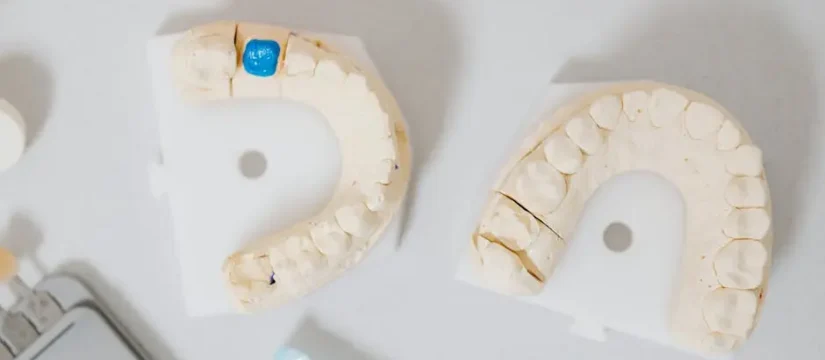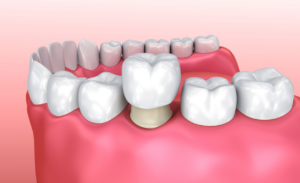
Understanding Porcelain Crowns and Their Dental Applications
Porcelain crowns are versatile dental restorations that have various applications in dentistry. These crowns are custom-made to cover a damaged tooth entirely, restoring its shape, size, strength, and improving its appearance. By understanding the role of porcelain crowns in dental treatments, patients can make informed decisions about their oral health. Depending on the specific dental issue, a dentist may recommend a porcelain crown to protect a weak tooth, restore a broken tooth, cover a dental implant, or support a dental bridge.
One of the primary benefits of porcelain crowns is their natural appearance. The material used to create these crowns mimics the translucency and texture of natural teeth, blending seamlessly with the surrounding teeth. This aesthetic advantage makes porcelain crowns a popular choice for visible teeth restorations. Additionally, porcelain crowns are biocompatible and well-tolerated by gum tissue, reducing the risk of allergic reactions or gum irritation.
Beyond aesthetics, porcelain crowns offer durability and strength. When properly cared for, these crowns can last for many years, providing long-term functionality. The strength of porcelain crowns allows patients to bite and chew comfortably, restoring full functionality to their smile. With advancements in dental technology, porcelain crowns can be customized to match the color, size, and shape of the patient’s natural teeth seamlessly.
Advantages of Porcelain Crowns Over Other Dental Restoration Options
When comparing porcelain crowns to other dental restoration options, several advantages become apparent. Unlike metal crowns, porcelain crowns are metal-free, making them an excellent choice for patients concerned about metal allergies or sensitivities. Furthermore, porcelain crowns do not conduct heat or cold as metal crowns do, reducing sensitivity to temperature changes in the mouth.
Another key advantage of porcelain crowns is their ability to preserve more of the natural tooth structure during the restoration process. This conservative approach helps maintain the integrity of the tooth while providing necessary support and protection. Additionally, porcelain crowns are stain-resistant, offering a long-lasting solution for a bright and natural-looking smile.
Patients often appreciate the precise fit and comfort of porcelain crowns. These crowns are custom-made to ensure a secure fit and optimal comfort in the mouth. The tailored design of porcelain crowns enhances their functionality and minimizes the risk of complications or discomfort. Overall, the superior aesthetics, strength, and comfort of porcelain crowns set them apart as a premier choice for dental restorations.
Moreover, porcelain crowns are known for their biocompatibility, meaning they are well-tolerated by the body and gums. This feature reduces the risk of adverse reactions or inflammation, promoting overall oral health. With porcelain crowns, patients can enjoy a natural-looking smile that enhances their confidence and quality of life.
Factors to Consider When Opting for Porcelain Crowns
When deciding on porcelain crowns for dental restoration, several factors should be taken into account. The location of the tooth needing the crown, the patient’s oral health, and aesthetic preferences all play a role in the decision-making process. Additionally, the cost of porcelain crowns compared to other options, insurance coverage, and the expected longevity of the restoration are essential considerations.
It is crucial to consult with a qualified dentist to discuss the benefits and potential risks of porcelain crowns. Dentists can evaluate the individual’s oral health, recommend the most suitable treatment plan, and address any concerns the patient may have. By understanding the factors that influence the choice of dental restorations, patients can make informed decisions that prioritize their oral health and overall well-being.
The Procedure: What to Expect When Getting Porcelain Crowns
The process of getting porcelain crowns typically involves multiple dental visits. During the initial appointment, the dentist will examine the tooth, address any underlying issues, and prepare the tooth for the crown. This preparation may involve reshaping the tooth to ensure a proper fit for the crown. Impressions of the tooth are taken to create a custom porcelain crown that matches the size and shape of the natural tooth.
Once the porcelain crown is fabricated, it is placed and adjusted for fit and comfort. The dentist ensures that the color and shape of the crown blend seamlessly with the surrounding teeth for a natural appearance. Patients are provided with care instructions to maintain their porcelain crowns effectively. Regular dental check-ups and proper oral hygiene practices can help extend the longevity of porcelain crowns.
Overall, the procedure for getting porcelain crowns is minimally invasive and can significantly improve the function and aesthetics of the smile. Patients can expect a comfortable experience during the placement of porcelain crowns and enjoy the lasting benefits of a restored and healthy smile.
Maintaining and Caring for Your Porcelain Crowns Long-Term
Proper maintenance and care are essential for preserving the longevity and appearance of porcelain crowns. Patients should follow good oral hygiene practices, including brushing and flossing regularly to prevent plaque buildup and maintain healthy gums. Avoiding hard foods or habits like teeth grinding can help prevent damage to the porcelain crowns.
Regular dental check-ups are crucial for monitoring the condition of porcelain crowns and addressing any issues promptly. Dentists can assess the fit and integrity of the crowns, make any necessary adjustments, and ensure that the restorations remain in optimal condition. With proper care and attention, porcelain crowns can provide lasting comfort and functionality for years to come.
In case of any concerns or discomfort with porcelain crowns, patients should consult their dentist promptly. Timely intervention can prevent further damage and maintain the integrity of the restorations. By prioritizing oral care and staying proactive about dental health, patients can enjoy the benefits of porcelain crowns for their dental restoration needs.

